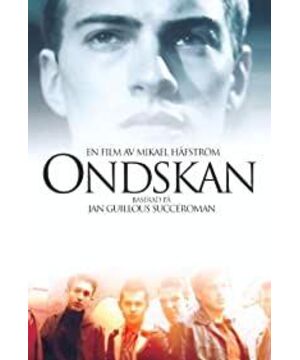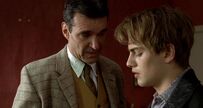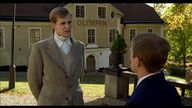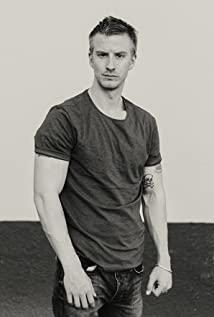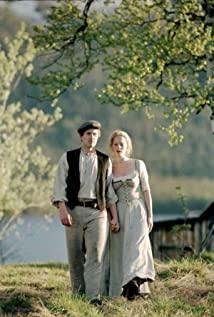(Spoiler) The ending of "If..." (If...) may be reminiscent of Cishwinson's "The Elephant", the bullied student shoots at the campus with guns. Shows the foresight of "If" director Lindsay Anderson. He also clearly stated that the film has a prophetic nature. If the tension between students and the system continues...what will happen? "Elephant" is adapted from a real school tragedy, and the prediction is sadly accurate.
But "If..." adopts a relaxed tone, abandoning the compact plot, and the description of violence is not particularly heavy. Outside of the main line, the life of the students in the boarding school is displayed casually; the leaders are bossy, so playing truant, drinking, and growing a beard becomes fun. Mike and old friends took advantage of the school ball game to walk on the street, playing the shadowless sword and other scenes are probably to pay tribute to "Four Hundred Strikes" and "Happy Together": Youth is freedom! Although the director said that making this movie is realism, just show what they are, to show the phenomenon of power relations on campus, there are both autocratic intrepidity and the pleasure of secretly committing crimes. The relaxed and humorous tone has developed, but it has become surrealism. Mike and his old friend skipped school to the coffee shop, and forced a kiss of the girl who was watching the shop, but got a wild "counterattack." It was obviously a sexual fantasy. Inserting the naked embracing and biting scenes just made the words clearer. The girl seems to be Mike's alter ego, a hint that her inner wildness has been released. So she would appear unreasonably when Mike was punished to clean up the school basement. There will be a box of munitions in the basement. How could it be possible? The girl even joined the final gunfight and shot the principal through the head.
This kind of fantasy does not seem to be a fairy tale, because it is too violent, but there is no blood splattered in the picture, and it is deliberately watered down. Even the principal's forehead gunshot wound only shed a little blood. When he died, he had to make faces with "cock-eyes". Authenticity. But "fairy tales" are actually very violent. There are domestic violence and some cannibalism, just deliberately avoiding blood. This is a deep irony of the invisible violence institutionalized by the boarding school. Mike and two buddies accept a gauntlet scene. One person is called into the gymnasium to be punished. The other two wait outside the door. The camera does not follow up. The violence inside is invisible, but it does exist. And at that time Mike didn't know that the disaster was imminent, because the inability to see made people less alert. On the contrary, the violence of the system is always watching you, pervasive so that Mike and others don't have to make any serious mistakes. The "general attitude" is already guilty. What kind of attitude is that? The four Big Brothers are well-dressed, well-dressed, and served by people (both are forced to be in the lower grades), and they are a mature gentleman, probably because of this authorization from the school. Mike and the two buddies are like the opposite, seemingly innocent. But there is no sabotage, just insisting on doing what you want to do. The problem is that comprehensive discipline invades every crevice of personal space, and insisting on being yourself becomes resistance. Youth just wants to be free and have space to smoke one's own cigarette. This situation is similar to "Evil". The boarding schools in Sweden in 2003 and the UK in 1968 were surprisingly similar. The school also allowed the student leaders to govern. The protagonist of "Bad Boy" was also unwilling to succumb to the system. And the direct violence has become the "nail in the eye" of the student leader. However, compared to the horizontal fragmentary depiction of campus life in "Fake from...", "Bad Boy" focuses on the growth process of the protagonist and has a more in-depth description of the source of violence.
The protagonist Erik was originally a bad boy who bullied others, and no public school was willing to accept it. His mother had to sell the property for him to enter the boarding school for the children of high-ranking cadres. Erik wanted to cultivate his mind, and he and his roommate worked hard with each other academically, but unfortunately he was decayed and refused to be punished, so he offended the head of the student. "If..." rarely confesses the personal background of the students, but the violence in "Bad Boy" is closely related to domestic violence: it turns out that Erik knew that when the punishment escalated, he would be detained and not be able to go home on weekends, so he avoided it. Violent stepfather, because stepfather always used to make excuses for corporal punishment, and beat him on the back with a horse whip. Erik is the same as Mike, even though he thinks of ways to take advantage of the loopholes, he doesn't want to "make it big," and he tries his best to restrain himself from being punished. They were also beaten from behind, humiliated and weeping without saying a word; Mike picked up the gun from then on, but Erik only knew how to bully the weak outside, and those who didn't know the inside of the school just scolded him as "the essence is evil." But Erik at the boarding school began to change. He would rather be regarded as cowardly than accept the so-called "challenge" (actually a punishment) of two-to-one students, until they extended their magic claws to Erik's innocent roommate Pierre, and Erik was born again. The idea of total submission. But Pierre, who was inspired by Erik, would rather be beaten to the ground with nosebleeds than to give in. On the contrary, he aroused Erik's courage and challenged the two heads of students.
The handling of Erik's counterattack is very different from Mike's anarchic chaotic attack. Erik used violence to be violent but still restrained. He first showed his strength in front of everyone and knocked down two with one-to-two lightning. Then he ambushed the most powerful student leader in the wilderness. The "exit technique" had scared him to kneel and vomit. If "If..." is the trailer of "Elephant", it would be evil that gives birth to evil. That was also the beginning of "Bad Boy". The turning point was that Erik had the support of a few elders and the encouragement of his friends. He mustered up the courage to grow wisdom and face evil without being the fruit of evil. In fact, how could he let his stepfather abuse him and not resist? All are psychological factors. In the end, he was called into the room by the stepfather again, but he was not punished obediently. Instead, he faced a challenge: "You will be blind, have a nose burst, and your hands will be broken." The scene after the director disappeared, but we all know the result of the battle.
Think deeper, is the ending of "If..." really so evil? Why did Mike and his companions decide to fight back, not the four heads of students, but the pastor, principal and other adults? Or, they have seen it through, and the principal who is full of "I understand you! Please believe me!" is worse than those students, because they want students to be "ugly people" but pretend to be good people. Isn't it more abominable to instigate discord than a fox and a fake tiger? ? So Mike and the others did not "revenge the wrongs", the authoritarianism stems from the hypocrisy and irresponsibility of adults!
View more about Evil reviews


